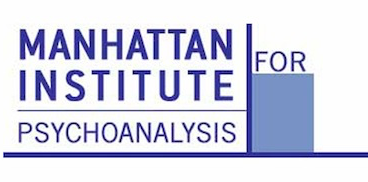In recent years, many psychoanalytic institutes have opened their doors to non-clinically trained professionals holding a Master’s level degree or higher. Manhattan Institute has welcomed Licensure Qualifying Program candidates from a broad range of fields including writing, publishing, biology, and law, individuals who bring to their training unique perspectives on psychoanalysis.
Here, first-year LQP candidate Justine Duhr, MFA, reflects on how the connection between reader and text is not unlike that between analyst and analysand.
“He opened the book; and as he did so it became not his own. He let his fingers riffle through the pages and felt a tingling, as if those pages were alive. The tingling came through his fingers and coursed through his flesh and bone; he was minutely aware of it, and he waited until it contained him, until the old excitement that was like terror fixed him where he lay. The sunlight, passing his window, shone upon the page, and he could not see what was written there.”
-from the closing lines of John Williams’ Stoner
It’s just past midnight on a Tuesday. I’m lying in bed with my dog on one side, a cooling cup of tea on the other. My husband is asleep, lightly snoring, having already embarked, no doubt, on tonight’s unconscious adventures. In the street below, it’s starting to rain. I can tell by the cling-clang of drops on the city’s metal and also by the new way sound seems to carry. A young woman’s playful shriek, a baby’s shrill cry, these sounds echo around the block and reach me finally, as if from a great distance.
I’ve just closed John Williams’ Stoner, just consumed the final delicious lines not for the first time nor nearly the last. Now I lie very quiet and very still with the book in my lap, feeling its precious weight in my hands, feeling the way I almost always feel upon finishing a novel: impossibly painfully irrevocably human.
That’s why I read, I think. In a highly collaborative effort of imagination and feeling, I connect with the story, the characters, the writer, and also with something deep inside myself.
Sandra Buechler in Making a Difference in Patients’ Lives: Emotional Experience in the Therapeutic Setting (2008) likens the role of the therapist to that of the poet. Buechler writes:
As analysts, our target, like the poet’s, is to evoke more than we say. This makes it more likely that phrases that resonate with the patient’s inner experience will be cocreated. The culture the patient and I have in common provides a dictionary that exists “outside” us. From it we create a kind of poetry by using highly evocative language. Layers of meaning come from experiences we have had with each other, or talked about. Like all poetry, its function, aside from giving us joy and helping us feel connected, is to prompt us to think just a bit beyond what we have already consciously known. (pp. 213-14)
Here we see the therapeutic dyad as a microcosm of the human experience, our perpetual search for connection, through the art of language in the case of psychoanalysis and poetry—and, I would argue, poetic prose. Just as patient and analyst work together to discover and examine the patient’s inner life (the cocreation Buechler points to), so too do author and reader collaborate to create an experience that is both illuminating and therapeutic in its own right. Through the act of reading we have the profound experience of connecting to something larger than ourselves.
In reading as in analysis, the experience is the thing. In interpersonal analysis especially, in which meaningful change depends so heavily upon the particular relationship that develops between therapist and patient, the experience is everything.
I remember one 11th-grade English class during which my teacher, Mr. Scott, busied himself at the blackboard drawing diagram after diagram: plot in Toni Morrison’s Song of Solomon, character arc in Song of Solomon, symbolism in Song of Solomon, and so on. I had already by then fallen deeply in love with literature and, as was my habit in those days, had adopted my most recent read as my favorite. I felt defensive about the book, protective even, and silently rebelled against this rigid structure that I feared would explain my experience away. This can’t be what this book is about, I thought, surveying the tidy chalk lines that seemed to me like a death sentence. I wanted not hard knowledge, not facts, but acknowledgement of my feelings as I read this great work. I understood in my heart before I did in my head that charts and diagrams couldn’t possibly do justice to my experience, my personal connection with the novel, which was for better or worse uniquely my own.
I felt changed by Song of Solomon, and by countless reading experiences after—Housekeeping, Frankenstein, Crime and Punishment, The Lover, to name just a few. These encounters became part of me. I was altered by them, no matter that I didn’t know then and don’t know now and likely won’t ever know precisely how. Morrison, Robinson, Shelley, Dostoevsky, Duras, these authors and I worked together to create the unique reading experiences that conspired to make me who I am. I read, and their stories became entwined with my own.
In this way, reading keeps me connected. I read to know others. I read to know myself.
But what it is to know is, of course, not so simple. Knowledge, insight, and experience are fickle and fleeting. Illumination can obscure as much as it reveals, as Stoner’s sunlight that “shone upon the page, and he could not see what was written there.” And so we keep trying, searching for connection, striving towards meaning, because we’re human and that’s what we do. Thankfully, in books and in analysis, there is no end of stories to tell.
Justine Duhr, MFA, is a psychoanalytic candidate at the Manhattan Institute for Psychoanalysis. Her fiction and nonfiction has appeared in the Texas Observer,Publishing Perspectives, The Review Review, Whiskey Island, Fringe Magazine, and beyond. She owns and operates WriteByNight, a writers’ service dedicated to helping people achieve their creative potential and literary goals.
Click here for more information about the Licensure Qualifying Program at the Manhattan Institute for Psychoanalysis.
References
Buechler, S. (2008). Making a difference in patients’ lives: Emotional experience in the therapeutic setting. New York, NY: Routledge.








Leave a Reply
Your email is safe with us.